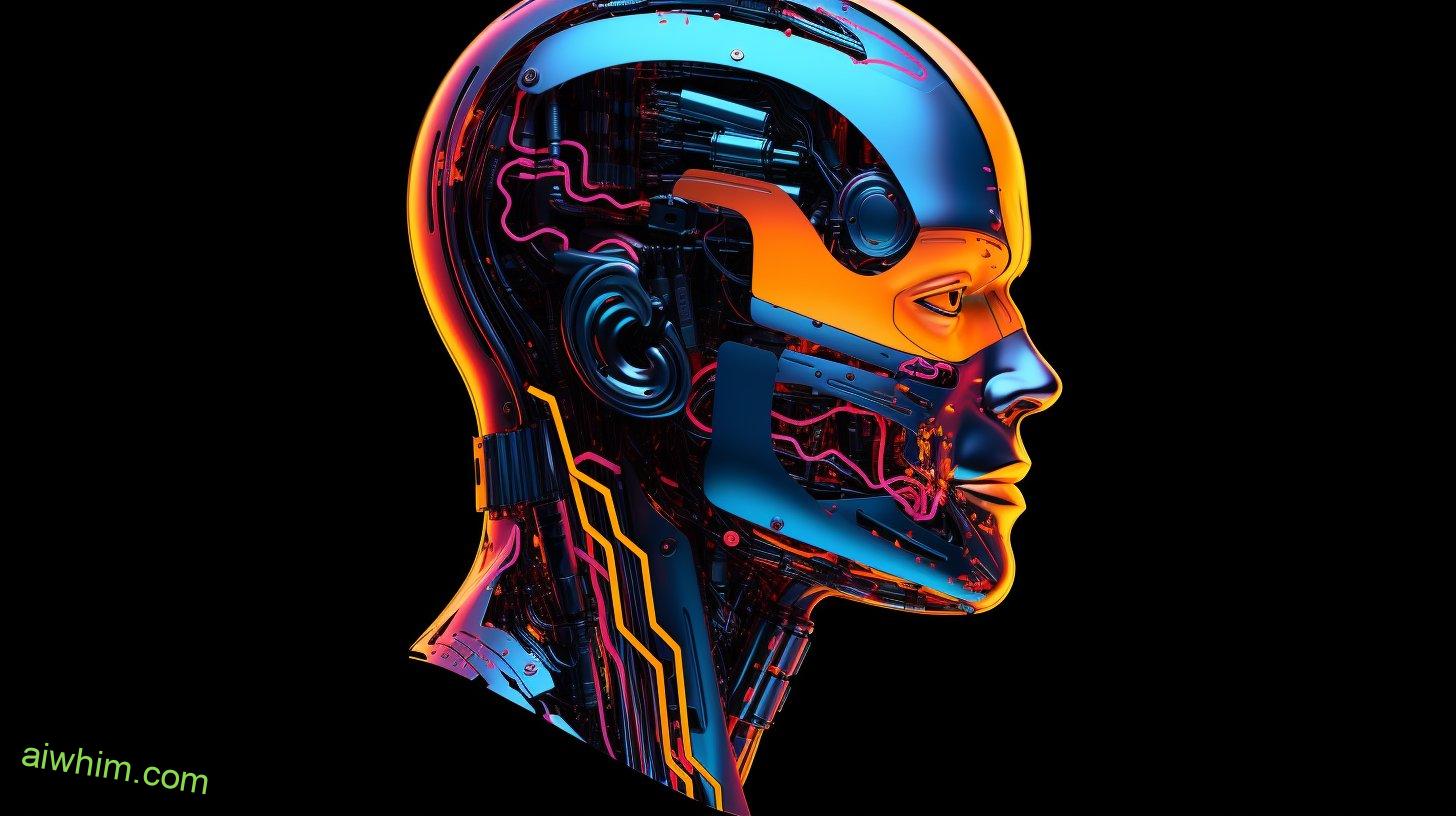In today’s rapidly evolving business landscape, it’s crucial to acknowledge the growing influence of artificial intelligence (AI) on various industries.
As a buyer or purchasing agent, you may be intrigued by the potential impact of AI on your career. From streamlining procurement processes to optimizing inventory management, the integration of AI technologies offers both opportunities and challenges.
But what exactly does this mean for you? How will AI reshape your role and what steps can you take to adapt and thrive in this new era of procurement?
Let’s explore the exciting possibilities and potential pitfalls together.
Key Takeaways
- AI revolutionizes the way buyers and purchasing agents operate in procurement, automating tasks, analyzing data, and optimizing decisions.
- AI enhances efficiency in purchasing processes by automating data analysis, streamlining supplier selection, and accurately forecasting demand.
- AI technology enhances decision-making by improving data analysis, risk assessment, and supplier evaluation.
- AI streamlines supplier selection and management by analyzing performance metrics, automating evaluation, and identifying cost reduction opportunities.

Understanding the Role of AI in Procurement
To understand the role of AI in procurement, you need to recognize how it revolutionizes the way buyers and purchasing agents operate. AI integration in the supply chain has a significant impact on procurement strategies, empowering buyers and agents to make more informed decisions and streamline their processes.
With the advent of AI, buyers and purchasing agents now have access to advanced technologies that can analyze vast amounts of data in real-time. This allows them to identify patterns, trends, and potential risks within the supply chain, enabling them to make proactive decisions and mitigate any potential disruptions.
AI also enhances the accuracy and efficiency of procurement processes. By automating repetitive tasks such as data entry, price comparisons, and contract management, AI frees up valuable time for buyers and agents to focus on strategic initiatives. This automation not only reduces human error but also improves overall productivity.
Furthermore, AI-powered algorithms can optimize procurement decisions by considering various factors such as cost, quality, and supplier reliability. These algorithms can swiftly evaluate multiple suppliers, negotiate contracts, and suggest the most favorable options based on predefined criteria. This enables buyers and agents to achieve cost savings, negotiate better deals, and build stronger relationships with suppliers.
The integration of AI in procurement also enhances transparency and accountability. By providing real-time visibility into the entire procurement process, AI ensures that buyers and agents can track and monitor every step, from supplier selection to delivery. This level of transparency promotes fairness, minimizes fraud, and supports ethical sourcing practices.

Increasing Efficiency in Purchasing Processes
By implementing AI technology, purchasing processes can be significantly streamlined, enhancing efficiency and effectiveness. With the increasing automation of various tasks, AI can help buyers and purchasing agents optimize the supply chain, saving time and resources.
One way AI can increase efficiency in purchasing processes is through automated data analysis. AI algorithms can quickly analyze large amounts of data, such as sales trends, market conditions, and supplier performance, to provide valuable insights. This allows buyers to make faster, more informed decisions, leading to improved efficiency in the procurement process.
Furthermore, AI-powered systems can streamline the supplier selection process by automating the evaluation of potential suppliers. By analyzing supplier profiles, performance metrics, and customer feedback, AI can identify the most suitable suppliers for specific needs. This not only saves time but also ensures that buyers are working with reliable and high-quality suppliers.
Another area where AI can enhance efficiency is in demand forecasting. By analyzing historical data and external factors, such as market trends and customer preferences, AI algorithms can accurately predict future demand. This enables buyers to optimize inventory levels and reduce the risk of stockouts or overstocking, ultimately improving supply chain efficiency.
In addition to these benefits, AI can also automate routine tasks such as purchase order generation, invoice processing, and contract management. By eliminating manual processes, buyers can focus on more strategic activities, such as building relationships with suppliers and negotiating better deals.

Enhancing Decision-Making With AI Technology
AI technology revolutionizes decision-making for buyers and purchasing agents, empowering them to make more informed choices and drive better outcomes. With the implementation of AI, you can experience a significant impact on your job satisfaction and overall efficiency. Here are three ways AI enhances your decision-making process:
- Improved data analysis: AI algorithms can process vast amounts of data in real-time, identifying patterns and trends that may not be apparent to human analysts. This capability allows you to access valuable insights quickly and make data-driven decisions that align with your organization’s goals.
- Enhanced risk assessment: AI technology can analyze historical data and market trends to identify potential risks and predict future outcomes. By having access to this information, you can assess and mitigate risks more effectively, ensuring that your purchasing decisions are well-informed and minimize potential losses.
- Streamlined supplier selection: AI-powered tools can evaluate and compare multiple suppliers based on various criteria, such as cost, product quality, and delivery times. This automation simplifies the supplier selection process, saving you time and effort while ensuring you choose the most suitable partners for your organization.
While AI technology offers numerous benefits, its implementation may come with challenges. Some potential AI implementation challenges include data quality issues, privacy concerns, and the need for continuous training and maintenance. However, these challenges can be overcome with proper planning, collaboration, and investment in AI infrastructure.

Streamlining Supplier Selection and Management
With the ability to evaluate and compare multiple suppliers based on various criteria, AI-powered tools streamline the selection and management process for buyers and purchasing agents. These tools provide a range of benefits that allow you to optimize your supply chain and make more informed decisions.
Supplier evaluation is a critical aspect of the procurement process. AI-powered tools can analyze vast amounts of data, such as supplier performance metrics, quality control records, and customer feedback. By automating this evaluation process, you can quickly identify the most reliable and cost-effective suppliers.
Furthermore, AI tools enable you to compare suppliers based on specific criteria that align with your organization’s needs. Whether you prioritize cost, quality, sustainability, or delivery time, AI can quickly generate supplier rankings based on these factors. This saves you time and effort in manually sifting through data and allows you to make objective, data-driven decisions.
Once suppliers are selected, AI-powered tools continue to streamline the management process. They can monitor supplier performance in real-time, tracking metrics such as on-time delivery, product quality, and customer satisfaction. This enables you to identify any potential issues early on and take corrective actions to ensure smooth operations.
In addition, AI tools can assist in supply chain optimization by identifying opportunities for consolidation, cost reduction, and efficiency improvement. They can analyze historical data, market trends, and demand forecasts to help you identify the most cost-effective and efficient supply chain strategies.

Optimizing Inventory Management With AI
To optimize inventory management, AI-powered tools provide valuable insights and automation capabilities. By harnessing the power of artificial intelligence, you can effectively manage your inventory and ensure that you have the right products in stock at the right time.
Here are three ways AI can help optimize your inventory management:
- AI-driven demand forecasting: AI algorithms can analyze historical sales data, market trends, and other relevant factors to accurately predict future demand. This enables you to make informed decisions about inventory levels and avoid stockouts or excess inventory. With AI-driven demand forecasting, you can optimize your inventory levels and reduce carrying costs, while still meeting customer demand.
- AI-powered supply chain optimization: AI can optimize your supply chain by analyzing various factors, such as lead times, transportation costs, and supplier performance. By considering all these variables, AI can help you identify the most efficient and cost-effective suppliers, streamline your procurement processes, and reduce overall supply chain costs. With AI-powered supply chain optimization, you can improve the efficiency of your inventory management and reduce operational costs.
- Real-time inventory monitoring: AI-powered tools can continuously monitor your inventory levels, sales data, and other relevant metrics in real-time. This allows you to quickly identify any discrepancies or issues, such as stockouts or overstocking, and take immediate action to rectify them. With real-time inventory monitoring, you can ensure that your inventory is always optimized, minimizing the risk of lost sales or excess costs.

Improving Cost Analysis and Negotiations
By leveraging AI-powered tools, you can enhance your cost analysis and negotiation strategies, leading to more effective and efficient procurement processes. AI technology can provide you with valuable insights and data analysis capabilities that can help you identify areas for cost reduction and optimization. With AI, you can analyze historical purchasing data, market trends, and supplier performance to identify cost-saving opportunities.
AI tools can also help you improve your supplier relationships by providing you with real-time information on supplier performance and pricing. By analyzing supplier data, you can identify reliable and cost-effective suppliers, negotiate better terms, and build stronger relationships. AI algorithms can analyze vast amounts of data quickly, allowing you to make data-driven decisions and negotiate more effectively.
Furthermore, AI can assist you in optimizing negotiation strategies by providing predictive analytics. By analyzing historical data and market trends, AI algorithms can predict the best negotiation strategies for specific suppliers and products. This can help you secure better pricing, discounts, and contract terms.
In addition, AI-powered chatbots can assist you in negotiations by providing real-time support and guidance. These chatbots can answer your questions, provide suggestions, and help you navigate complex negotiation processes. This can save you time and improve the efficiency of your negotiations.

Mitigating Risks and Ensuring Compliance
As you enhance your cost analysis and negotiation strategies using AI-powered tools, you can also mitigate risks and ensure compliance within your procurement processes. AI technology offers several ways to address these concerns, providing you with the freedom to navigate potential pitfalls and stay in line with regulations.
Here are three ways AI can help you in mitigating risks and ensuring compliance:
- Real-time monitoring: AI algorithms can continuously monitor and analyze data from various sources, such as supplier performance, market trends, and regulatory changes. By leveraging AI-powered analytics, you can identify potential risks and compliance issues early on, allowing you to take proactive measures to address them before they become major problems.
- Automated compliance checks: With AI, you can automate compliance checks throughout the procurement process. By integrating AI algorithms into your procurement systems, you can ensure that every transaction and decision aligns with relevant regulations, contract terms, and company policies. This not only saves time but also minimizes the risk of non-compliance.
- Enhanced risk assessment: AI can help you assess risks associated with suppliers, contracts, and other procurement activities. By analyzing historical data and using predictive models, AI algorithms can identify potential risks and their impact on your organization. This enables you to make informed decisions and take appropriate actions to mitigate these risks effectively.

Exploring New Opportunities With AI Tools
Discover how AI tools can open up new opportunities for you. As a buyer or purchasing agent, you have the freedom to explore automation possibilities and embrace the power of AI in customer service. With AI tools, you can revolutionize your role and unlock a world of possibilities.
One exciting opportunity that AI tools present is the ability to streamline and automate repetitive tasks. By leveraging AI algorithms, you can automate routine processes such as order placement, supplier selection, and inventory management. This not only saves you time but also allows you to focus on more strategic and value-added activities. With AI handling the mundane tasks, you’re free to explore new opportunities and make a greater impact in your role.
AI tools also offer immense potential in enhancing customer service. By utilizing natural language processing and machine learning algorithms, AI-powered chatbots can provide instant and personalized assistance to customers. These chatbots can handle a wide range of inquiries, from product queries to order status updates, providing a seamless and efficient customer experience. By incorporating AI in customer service, you can improve customer satisfaction and build stronger relationships with your clients.
Furthermore, AI tools can assist you in making data-driven decisions. With access to vast amounts of data, AI algorithms can analyze patterns, trends, and market insights, helping you make more informed and strategic purchasing decisions. By harnessing the power of AI, you can optimize your procurement process and drive cost savings for your organization.

Adapting to Changing Skill Requirements
To adapt to changing skill requirements, you must continuously update your knowledge and embrace emerging technologies. As a buyer or purchasing agent, staying ahead of the curve is crucial to remain competitive in the industry. Here are three key strategies to help you navigate these changes:
- Embrace lifelong learning: Recognize that learning is a continuous process. Seek out opportunities to enhance your skills and knowledge through training programs, workshops, and online courses. Stay updated with industry trends and advancements to ensure you’re equipped with the latest knowledge and expertise.
- Develop technological proficiency: Technology is rapidly transforming the field of purchasing and procurement. Familiarize yourself with new software applications and tools that can streamline processes and improve efficiency. Embrace automation, artificial intelligence, and data analytics to make informed decisions and optimize supply chain management.
- Build a strong network: Connect with professionals in your industry, attend conferences, and participate in industry-related events. Networking provides opportunities to learn from others, gain insights into best practices, and stay updated on emerging trends. Collaborating with peers can also lead to new opportunities and partnerships.
In this ever-evolving landscape, adaptability is key. Embracing changing skill requirements and being proactive in updating your knowledge and skills will position you for success. Remember, the world of purchasing and procurement is dynamic, and those who are willing to learn, adapt, and embrace emerging technologies will thrive in the industry.

Navigating the ethical implications of AI is a complex task that requires careful consideration and proactive measures. As buyers and purchasing agents, it’s imperative to understand the ethical considerations associated with the use of AI in our profession.
AI has the potential to revolutionize the way we work, increasing efficiency and accuracy. However, it also raises important questions about transparency and accountability.
One of the key ethical considerations when using AI is ensuring transparency. As AI algorithms become increasingly sophisticated, it becomes more difficult to understand how decisions are being made. This lack of transparency can lead to a loss of trust in the AI systems we rely on. It’s essential to advocate for AI transparency, pushing for clear explanations of how decisions are reached and ensuring that bias and discrimination aren’t perpetuated.
Another ethical consideration is the potential impact of AI on employment. As AI technology advances, there’s a concern that it may replace human workers, leading to job losses and economic inequality. As buyers and purchasing agents, we must actively engage in discussions about the ethical implications of AI on the workforce. This includes considering how to reskill and adapt to changing job requirements, as well as advocating for policies that promote a just transition for workers affected by AI implementation.
In navigating the ethical implications of AI, it’s crucial to take a proactive approach. This means staying informed about the latest developments in AI technology and actively participating in discussions about its impact. It also involves advocating for ethical guidelines and regulations that promote fairness, transparency, and accountability in AI systems.

Overcoming Resistance to AI Adoption
As buyers and purchasing agents, you can overcome resistance to AI adoption by addressing concerns and promoting its benefits. Overcoming organizational resistance is crucial for successful AI implementation. Here are three ways to tackle AI implementation challenges and encourage acceptance within your organization:
- Educate and communicate: Many employees may be resistant to AI due to fear of job loss or unfamiliarity with the technology. To overcome these concerns, it’s essential to educate and communicate the benefits of AI. Explain how AI can improve efficiency, reduce costs, and enhance decision-making. Emphasize that AI is meant to assist and augment human capabilities, not replace them.
- Start small and demonstrate success: Implementing AI on a smaller scale can help overcome resistance within the organization. Choose a pilot project where AI can be applied to solve a specific problem or streamline a process. By demonstrating the positive impact of AI in a controlled environment, you can build confidence and gain support for broader adoption.
- Involve employees in the process: Resistance to AI adoption can be reduced by involving employees in the decision-making and implementation processes. Seek their input and feedback, address their concerns, and provide training and support. This inclusive approach will help employees feel valued and empower them to embrace AI as a tool that can enhance their work rather than threaten it.

Addressing the Impact on Job Security
Don’t let concerns about job security hinder your acceptance of AI as a valuable tool in your role as a buyer or purchasing agent. It’s understandable to worry about the impact of AI on job security, especially considering the current job market and the potential for job displacement. However, it’s important to view AI as a complement to your skills rather than a threat.
The job market is constantly evolving, with new technologies and processes emerging all the time. AI is just one of the many advancements shaping the future of work. While it’s true that AI has the potential to automate certain tasks traditionally performed by buyers and purchasing agents, it also opens up new opportunities for growth and innovation.
Rather than viewing AI as a direct competitor, see it as a tool that can enhance your capabilities. AI can help you analyze vast amounts of data quickly, identify patterns, and make informed decisions. By leveraging the power of AI, you can improve your efficiency, accuracy, and overall effectiveness in your role.
Job displacement is a concern for many industries, but it’s important to remember that AI isn’t here to replace humans entirely. Instead, it enables us to focus on higher-level tasks that require human intuition, creativity, and relationship-building skills. As a buyer or purchasing agent, your expertise in negotiation, supplier management, and strategic decision-making will continue to be invaluable.
Embracing AI in your role can actually increase your job security by making you more adaptable and valuable in the ever-changing job market. By staying informed about the latest developments in AI and continuously updating your skills, you can position yourself as a valuable asset to your organization.

Upskilling and Realigning Career Paths
To thrive in the era of AI, you must proactively upskill and realign your career path as a buyer or purchasing agent. The rapid advancements in technology mean that traditional roles are evolving, and it’s essential to adapt in order to remain relevant in the industry.
Here are some key upskilling strategies and career transition opportunities to consider:
- Embrace technology: AI is revolutionizing the procurement field, so it’s crucial to familiarize yourself with emerging technologies such as machine learning and data analytics. Seek out training programs or online courses that can help you develop the necessary skills to leverage these technologies effectively.
- Develop soft skills: While AI can automate certain tasks, it can’t replace human qualities such as creativity, critical thinking, and communication. Focus on honing your interpersonal skills, problem-solving abilities, and adaptability. These skills will make you invaluable in a field that’s increasingly reliant on collaboration and innovation.
- Explore new roles: AI may disrupt traditional roles, but it also creates new opportunities. Consider transitioning into roles that complement AI technologies, such as data analysis, strategic sourcing, or supply chain management. Look for certifications or additional education that can help you acquire the specific knowledge and skills needed for these roles.

Leveraging AI for Professional Development
Leverage AI to enhance your professional development and stay ahead in your career as a buyer or purchasing agent. In today’s fast-paced and evolving business landscape, it’s crucial to embrace AI-driven skill development and tap into the power of AI for professional growth.
AI has the potential to revolutionize the way we learn and develop new skills. With AI-powered platforms and tools, you can access personalized and targeted learning experiences that cater to your unique needs and interests. These platforms use advanced algorithms to analyze your strengths and weaknesses, identify skill gaps, and recommend relevant courses or training programs. By leveraging AI, you can optimize your learning journey and acquire the skills required to excel in your role as a buyer or purchasing agent.
Furthermore, AI can provide valuable insights and guidance for professional growth. AI-powered analytics tools can analyze vast amounts of data, including market trends, customer behavior, and supplier performance, to help you make informed decisions and strategic recommendations. By harnessing the power of AI, you can gain a competitive edge and make data-driven choices that drive business success.
In addition to skill development and decision-making support, AI can also automate routine tasks, freeing up your time to focus on higher-level responsibilities. By delegating repetitive and time-consuming tasks to AI-powered systems, you can increase productivity and efficiency, allowing you to dedicate more time to strategic initiatives and professional development.

Future Prospects and Emerging Trends in AI
As AI continues to advance, the future prospects and emerging trends in AI are becoming increasingly relevant for buyers and purchasing agents to stay ahead in their careers. The rapid development of AI technology is opening up new opportunities and reshaping industries across the board.
Here are three key areas where AI is expected to have a significant impact in the near future:
- Future Job Prospects: The rise of AI is expected to create new job opportunities for buyers and purchasing agents. As AI systems become more sophisticated, businesses will rely on professionals who can navigate and leverage these technologies to make informed purchasing decisions. Buyers and purchasing agents who possess AI skills and knowledge will be in high demand, as they can help organizations optimize their procurement processes, streamline operations, and identify cost-saving opportunities.
- AI Advancements in Healthcare: The healthcare industry is poised to benefit greatly from AI advancements. AI-powered technologies can analyze vast amounts of medical data, helping healthcare professionals make more accurate diagnoses, develop personalized treatment plans, and improve patient outcomes. For buyers and purchasing agents in the healthcare sector, understanding AI applications in medical devices, pharmaceuticals, and healthcare systems will be crucial. By staying informed and adapting to these advancements, they can contribute to the efficient procurement of AI-driven healthcare solutions and contribute to the overall improvement of patient care.
- Automation and Efficiency: AI has the potential to automate routine tasks and increase efficiency in the procurement process. Buyers and purchasing agents can leverage AI-powered systems to automate repetitive tasks like data entry, supplier identification, and price comparisons. This automation allows professionals to focus on higher-level strategic activities, such as building supplier relationships, negotiating contracts, and analyzing market trends. By embracing AI technology, buyers and purchasing agents can enhance their productivity, reduce costs, and make more informed decisions.
As AI continues to advance, buyers and purchasing agents who stay abreast of emerging trends and future job prospects in AI will be better positioned to excel in their careers. By understanding the potential impact of AI in fields such as healthcare, and embracing automation and efficiency, professionals can harness the power of AI to drive innovation and achieve success in the ever-evolving world of procurement.

Frequently Asked Questions
How Can AI Technology Be Used to Streamline Supplier Selection and Management?
AI technology can streamline supplier selection and management by automating processes, analyzing data, and identifying the most suitable suppliers. With AI, you can save time, make informed decisions, and ensure efficient supply chain operations.
What Are the Potential Ethical Implications of Using AI in Procurement?
Using AI in procurement raises potential ethical implications, such as ensuring data privacy and protecting sensitive information. It is crucial to consider these concerns and address them to maintain freedom and trust in the use of AI technology.
How Can Purchasing Agents Overcome Resistance to AI Adoption?
To overcome resistance to AI adoption, purchasing agents can highlight the benefits of AI technology in supplier selection and management, while addressing any ethical implications. By embracing emerging trends and upskilling, they can navigate new career paths.
What Are the Emerging Trends in AI That Could Impact the Role of Buyers and Purchasing Agents?
Emerging trends in AI, such as automated decision making and predictive analytics, have the potential to impact your role as a buyer or purchasing agent. Stay informed and adapt to these changes to thrive in your career.
How Can Professionals in the Procurement Field Upskill and Realign Their Career Paths to Leverage AI Technology?
You can explore upskilling opportunities and transition your career path to leverage AI technology. Embrace the chance to learn new skills, adapt to the changing landscape, and carve your own path towards success and freedom.

Conclusion
As you venture into the ever-evolving world of procurement, remember that AI isn’t a threat, but a powerful ally. Like a compass guiding you through the stormy seas of decision-making, AI enhances efficiency, streamlines processes, and optimizes inventory management.
Embrace the opportunities to upskill and realign your career path, knowing that AI will propel you towards professional development.
Together, we navigate the future, where AI opens doors to endless possibilities and shapes a brighter tomorrow.







